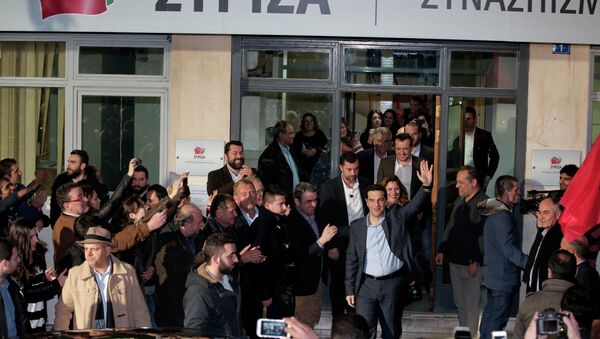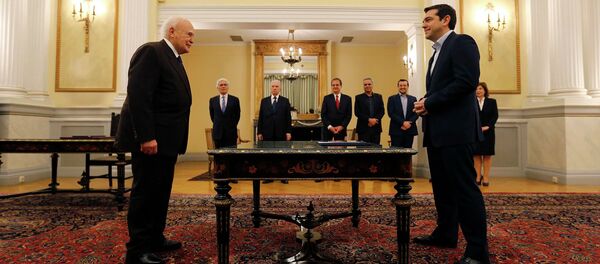On Wednesday, media reported that foreign ministers of the European Union planned to extend anti-Russia sanctions by another six months due to worsening situation in Ukraine, with a possibility of adding extra names to the list.
Earlier on Tuesday, EU leaders asked the Foreign Affairs Council to impose additional restrictive measures on Russia over its alleged role in the shelling of Mariupol earlier this month, in which at least 30 civilians were killed.
The newly-elected Greek government quickly spoke out against further restrictive measures on Russia.
The head of the Syriza, which won Greece's parliamentary elections Sunday, is not alone in his discontent with the EU statement.
"The voices opposed to new sanctions against Russia were not heard," a spokesman for the Cyprus government said, as reported by EurActiv Wednesday.
The United States, the European Union and their allies have imposed several rounds of sanctions against Russia beginning March 2014. The West cited Moscow's alleged interference in the Ukrainian conflict as the reason for the restrictions. Moscow has denied the accusations.
The sanctions target Russia's banking, energy and defense sectors, as well as several individuals.



